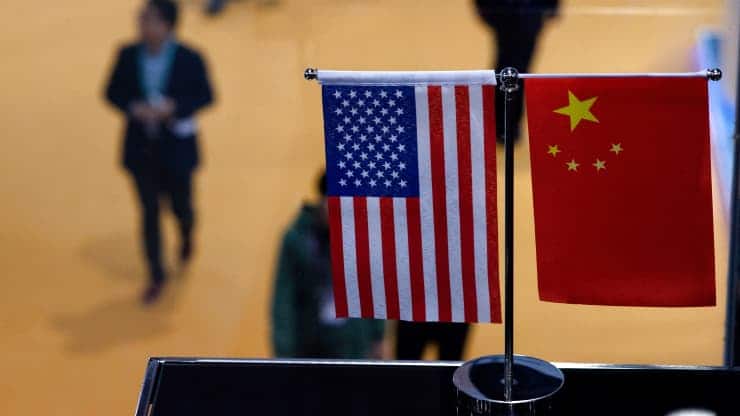
Johannes Eisele | AFP | Getty Images
American businesses are bearing most of the cost burden from the elevated tariffs imposed at the height of the U.S.-China trade war, said Moody’s Investors Service.
The ratings agency said in a Monday report that U.S. importers absorbed more than 90% of additional costs resulting from the 20% U.S. tariff on Chinese goods.
That means U.S. importers pay around 18.5% more in price for a Chinese product subject to that 20% tariff rate, while Chinese exporters receive 1.5% less for the same product, according to the report.
“A majority of the cost of tariffs have been passed on to US importers,” Moody’s said in the report.
“If the tariffs remain in place, pressure on US retailers will likely rise, leading to a greater pass-through to consumer prices,” the agency added.
Higher trade tariffs came into force during former U.S. President Donald Trump’s term. Most of those tariffs have remained in place and affect over half of all trade flows between the U.S. and China, said Moody’s.
U.S. tariffs on Chinese goods stood at an average of 19.3% on a trade-weighted basis in early 2021, while Chinese tariffs on American products were about 20.7%, according to data compiled by think tank Peterson Institute for International Economics.
Before the U.S.-China trade war in early 2018, U.S. tariffs on Chinese goods were on average 3.1% while China’s tariffs on American goods were at 8%, the data showed.
U.S. importers are not the only one bearing the brunt of the elevated tariffs.
Moody’s said in the report that U.S. exporters also absorbed most of the costs from tariffs imposed by China. That’s partly because the U.S. exports targeted by those retaliatory tariffs are products that may be sourced from other places, such as agricultural goods.
Economists and businesses had argued that Trump’s tariffs on China harm the U.S. economy, while failing to force China to reverse its unfair trade practices.
President Joe Biden previously said he disagreed with Trump’s approach to China, but is not in a hurry to reverse his predecessor’s policies. His administration had suggested that it’s open to using tariffs to fight China’s unfair trade practices.
Some observers said the tariffs could give the U.S. leverage over China.

